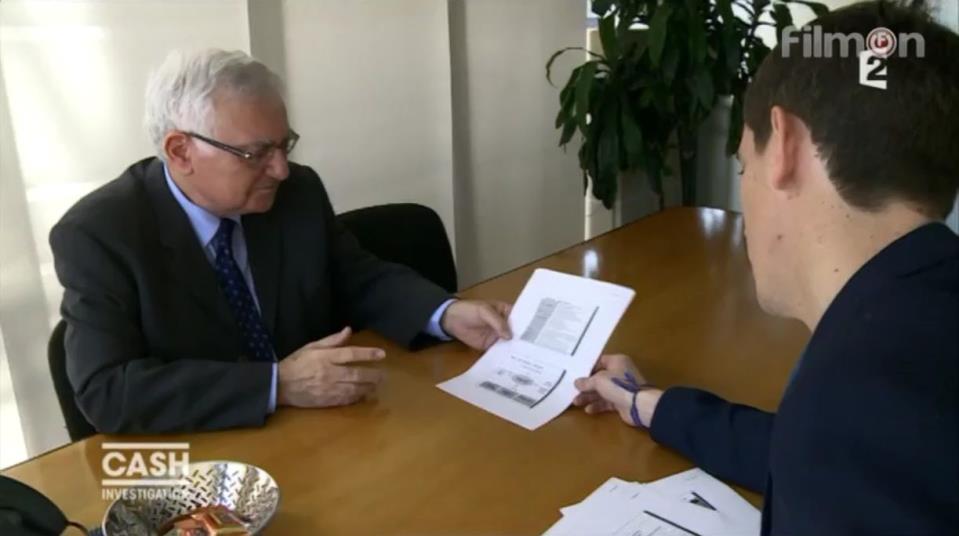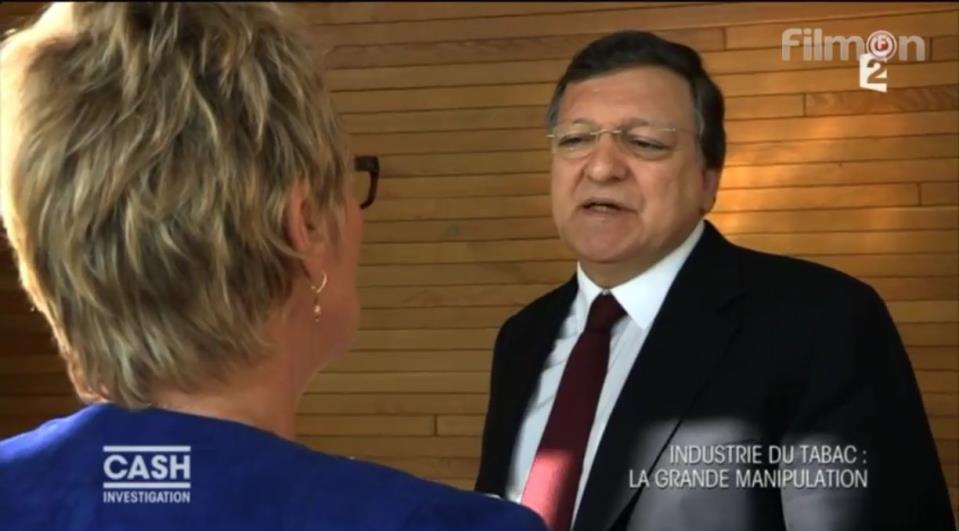A French investigative programme has suggested that the tobacco industry may have manoeuvred to force the removal of former Health Commissioner John Dalli, citing confidential documents by leading tobacco company Philip Morris International (PMI).
The 7 October edition of France 2 programme Cash Investigation, which is presented by investigative journalist Élise Lucet, focused on "the great manipulation of the tobacco industry," and included an interview with Mr Dalli by her colleague Laurent Richard.
But the programme's doubts about the Dalli case appear to originate from Philip Morris International's report, which Mr Dalli insisted he was unaware of.
The programme obtained access to some 600 pages of internal documents from PMI, including some dating back to 2012.
Arguably the most salient part of the report is a slide titled "ISC strategy and objectives," where the objective "target European Commissioner" is highlighted. According to this slide, the Commissioner was to be targeted through Brussels and international stakeholders, through Brussels and international media generated by EU-wide stakeholders, through local stakeholders and through media in local target communities and national media generated by domestic stakeholders.
Another slide titled "Strategy: possible Commission reverse tactics," the report also features the objective "achieve extreme measures by stealth."
The PMI documents were presented to Mr Dalli, who described them as further evidence that he had been targeted by tobacco lobbyists in a bid to delay the introduction of a revised - and stricter - Tobacco Directive.
Mr Dalli also insisted that a number of people working in Maltese media were mobilised against him, and that he knew what they were.
 New directive threatened to stop industry payments to Commission
New directive threatened to stop industry payments to Commission
But the PMI documents were not the only issue the programme focused on. Cash Investigation also looked into another matter: the regular payments, amounting to some €2 billion over a number of years, made by the tobacco industry to the European Commission.
Officially, these payments are made to assist in the fight against contraband cigarettes. But according to Cash Investigation, there is little indication of how this money is actually spent, leading it to question whether there was any link between these funds and Mr Dalli's resignation.
On his part, Mr Dalli asserted that he had no knowledge of these agreements, and also pointed out that they included a provision which stated that if EU laws were changed to the detriment of the tobacco industry, the industry was empowered to cancel these agreements - thus stopping the flow of funds.
"No one told me, 'listen, John, if you make this directive, we will jeopardise €2 billion in funds from the tobacco industry.' I would have sent them back, but nobody did," he said and questioned whether this prompted efforts to stop the directive in its tracks.
German MEP Ingeborg Grässle, who has called for the resignation of OLAF director-general Giovanni Kessler over his handling of the Dalli case, told the programme that these agreements appeared to be the missing links explaining why the situation developed as it did.
Another MEP who proved to be an unlikely backer of Mr Dalli's claims of a tobacco lobby conspiracy - French alter-globalisation activist José Bové - was also featured in the programme, stating that Commission President José Manuel Barroso should have resigned. He also pointed out that the industry's goal appeared to be to buy time, pointing out that delaying a new directive by months meant millions of euros in additional revenue.
Mr Kessler was also interviewed, and he insisted that there was no conflict of interest involved in his direct involvement in investigations on Mr Dalli. He insisted that OLAF had not harmed Mr Dalli through its investigations, but rather the former commissioner had to assume responsibility for what had developed.
When Mr Dalli resigned, one of the accusations levelled against him was that he held undeclared meetings with representatives of the tobacco industry, in breach of the code of conduct for Commissioners.
But there was a twist to the tale earlier this year, when transparency NGO Corporate Europe Observatory alleged that members Mr Barroso's cabinet had themselves held a number of undisclosed meetings with tobacco lobbyists.
 An attempt by Cash Investigation to interview Mr Barroso proved unsuccessful, but Ms Lucet got the opportunity to ask Mr Barroso a few questions by doorstepping him in Brussels.
An attempt by Cash Investigation to interview Mr Barroso proved unsuccessful, but Ms Lucet got the opportunity to ask Mr Barroso a few questions by doorstepping him in Brussels.
As he has done on a number of occasions, Mr Barroso stressed that Mr Dalli's position was untenable since he had breached the code of conduct, but refused to comment when Ms Lucet asked him to specify how the code of conduct was breached, and did not answer further questions on the alleged meetings members of his cabinet held with tobacco lobbyists.
MEPs also targeted, Busuttil deemed pro-tobacco on various issues
Among other things, the PMI documents showed that in many cases, MEPs' amendments to the Tobacco Directive had been effectively written by industry lobbyists and reproduced word for words.
The documents also included profiles of all MEPs, which had already been leaked to the public in September 2013.
While these profiles seek to assess MEPs' stances on various tobacco-related issues, PMI was only able to identify the stance of a minority of them on every issue, including just one Maltese MEP who was serving at the time - Nationalist Party leader Simon Busuttil.
According to PMI's interpretation, Dr Busuttil echoed the views of the tobacco industry in opposing generic packaging, extended health warnings, a ban on certain ingredients and a ban on displaying tobacco products at the point of sale. But his position on next-generation products and snus could not be identified.
Another PMI-related document which has already been made public is a report the company had commissioned in the Czech Republic, which used a somewhat morbid argument to argue that smoking was actually beneficial to the Czech economy. According to this report, smokers' early death provided savings on healthcare, pensions and housing for the elderly.